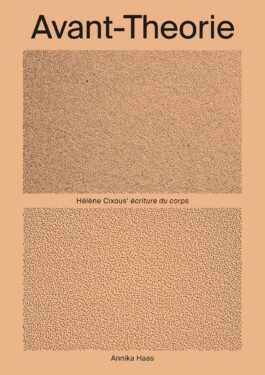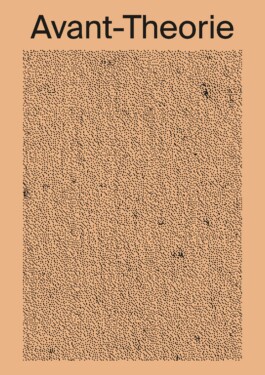PhD Thesis
Berlin University of the Arts, 2022

Design: Young Sam Kim

In the 1970s, writer and philosopher Hélène Cixous (*1937) prominently demanded to write with and through the body in order to subvert patriarchal discourse and invent new political, theoretical and poetical approaches to provoking topics in literature and philosophy at the time: desire, erotics, sexual difference. This dissertation discusses the philosophical and practical implications of the "écriture du corps" ("writing the body") that is key to Cixous’s post-structuralist and avant-queer-feminist approach.
"Writing the body" begins with encountering the other, i.e. texts, friends, ancestors, telepathic fellows, cats. This significance of the other challenges the role of the writing and researching subject in academic knowledge production: Writing with Cixous departs from reading as well as from being read, and it relies on a multiplicity of voices that are being perceived by an ever plural "I".
With Cixous, I propose a way of doing "avant-theory". Affirming writing as an embodied practice, this avant-theory operates "in the still boiling time […] when we feel and it is not yet called such-and-such, this, him or her." (Post-Word, 1999) Avant-theory allows for the other as well as the transforming and ever differently situated body to inscribe themselves. From the 1970s until today, this practice holds the potential to deconstruct sclerotic notions of "identity", "nation" or "gender."